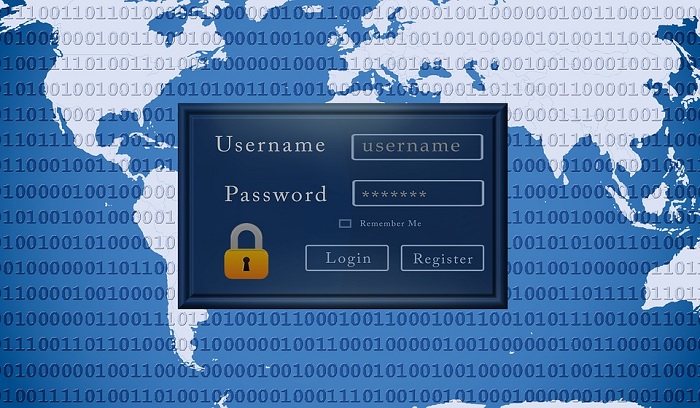
When you purchase through links on our site, we may earn an affiliate commission. Here’s how it works.
Have I Been Hacked? Here’s How To Know
There’s a lot of misinformation about hackers and hacking out there. To the mainstream media, hacking is a dark art practiced by mysterious anonymous people with shady backgrounds. Films also tend to depict hackers in this dramatic way. But none of them really show us what a hack looks like. How would you even know if your computer has been hacked?
It’s one thing when a hacker destroys all your data or makes themselves known, but sometimes there may be no obvious signs that your system has been compromised.
So how can you know if you've been compromised by a nefarious hacker? While there isn't always a 100%, foolproof way to detect a hack without a degree in computer science, there are some signs to look out for that might tip you off.
It's Probably NOT a Hacker
The first thing you need to know is that your computer probably wasn't hacked. There aren't that many hackers in comparison to the number of computer users in the world, so the chances that you, in particular, have been targeted for a hack is pretty slim.
That is if you are an average person who is of no interest to a hacker. If you work for a large company or are otherwise in possession of information or wealth, it makes it more likely that you could be the target of a hack. Keep that in mind when assessing your risk. You are much more likely to be the victim of a virus or malware. So use a good antivirus and trusted anti-malware software to rule out those two possibilities before going any further.
New Programs or Files Show Up From Nowhere
If you notice new strange programs running in your computer's task manager that may be a sign that something fishy is going on. Especially if a virus or malware scan brings up nothing. If you are the only person who uses that computer and that particular user account then such changes are suspicious.
If you are suspicious about a new program or files on your computer, Google them to see if anything suspicious comes up. Of course, I recommend you use a separate device for your research.
Unexpected Password Changes
This is a big one that should set off alarms immediately. If your Windows password has changed and you were not the one to do it, disconnect the machine from the internet immediately.
If you have linked your Windows PC to your Microsoft account then requesting a password reset via email is a good idea.
Of your local computer has been compromised I recommend you use a Linux live boot disc to access the information on the drive and backup anything that' very important. Of course, your truly private information should be encrypted. So even if a hacker manages to copy it they can't do anything with it.
Online passwords that have changed by themselves are also something that demands immediate attention. You should ask for a password reset right away. If the email has also somehow changed (some services allow this) then you need to get in touch with the company providing the service right away.
Wherever possible, always use two-factor authentication and of course strong generated passwords via a password manager.
Spam in Your Name
One common thing that hackers like to do is compromise email accounts. They then make them part of a spamming network. If the people in your address book are suddenly getting spammy emails from you chances are your email account has been hacked.
That's one of the most serious things that can happen to someone. Because this is also the account that is used to reset other accounts.
Weird Network Spikes
If you notice your internet connection suddenly slowing down and lots of network activity in your logs, there may be hackery afoot. Installing a network monitoring tool that tracks activity and IP addresses may clue you in on what your computer is doing.
Of course, it might just be Microsoft or another vendor pushing updates, but turning computers into part of a botnet army is a common hacker tactic.
A Slow, Noisy Computer
Related to the previous point, if your computer suddenly seems to be spinning up its fans constantly and be a little laggy when you want to use it, there may be a malicious process running in the background.
There are more than a few reasons for a computer to do this. One is dust buildup. It can also be caused by computer hijacking. Why? Well, the aforementioned spam botnet use case applies here. These days it could also be part of a decryption network. It could even be to mine cryptocurrency. Quite a few of these nefarious tasks require an internet connection. You can check whether system usage goes down. Just disconnect the internet. If the issue stops it could be a sign to check your machine out.
Your Computer Seems Possessed
Does your mouse pointer move by itself. Do programs you don't know pop up and ask for permissions before going away by themselves? If you see that sort of behavior yank or the Ethernet or switch off the WiFi. Hackers might have taken over your computer at a very low level.
Elementary, My Dear Watson
Plenty of other reasons could cause these signs. Which is why you should eliminate other possibilities before jumping to extreme conclusions. However, if you are a high-value target or have a hunch that something weird is going on, remember that the first step is always to disconnect the machine from the network. No matter how good a hacker is, they can't defeat an air gap firewall. Check out or internet safety guide for more advice on keeping out of trouble.
To help prevent a hacker from getting at your computer and its juicy insides, it's a good idea to get yourself a class-leading VPN solution. We've tried plenty of firewalls here at TechNadu and right now our favorite overall suggestion is ExpressVPN. It's the one VPN we recommend across all device types and operating systems.










